Lady Macbeth review - memorably nasty

Feminist psychosis in 19th-century Northumberland
The Scottish play’s traces are faint in this bloody, steamy tale of feminist psychosis.

The Scottish play’s traces are faint in this bloody, steamy tale of feminist psychosis.
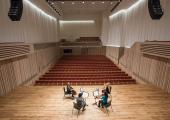
The opening of a new concert hall offers two options for opinionizing: the venue itself – or the performances in it? Review the acoustics – or the music? It has to be a mixture of the two, in the end. Chetham’s School of Music, in Manchester, has just celebrated (and seen opened by HRH Prince Edward) its £8.7m Stoller Hall – a state-of-the-art, 482-seat performance venue in the heart of Manchester, right next to Victoria Station.
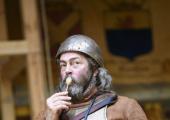
Much of the brilliance of Shakespeare lies in the openness, or ambiguity, of his texts. Whereas a novelist will often describe a character, an action or a scene in the most minute detail, Shakespeare knew that his scenarios would only be fully fleshed out when actors perform them. He was the first writer to create character out of language. Falstaff has an idiosyncratic way of speaking that is quite distinct from Juliet, as she does from Shylock, and he from Lady Macbeth. An actor receives subliminal clues about their character, merely by the way they express themselves.
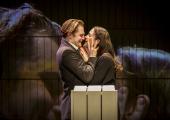
This is a well-travelled Winter’s Tale. Declan Donnellan has long been a director who's as much at home abroad as he is in the UK, and with co-production support here coming pronouncedly from Europe (there's American backing, too), Cheek by Jowl have made it abundantly clear where they stand on the issue of the day.

It felt good to be encountering Shakespeare at his most political with a world event to smile about, for once (hailing, of course, from this brilliant Dutch company's homeland). It felt even better to emerge six hours later spellbound and deeply moved by the triumph of the personal, albeit in a kind of love-death, after so many power-games.

Amy Leach’s energetic Romeo and Juliet is fast, furious and a little breathless, the setting transposed from Verona to a fairly grim contemporary Leeds. Think West Yorkshire Side Story.
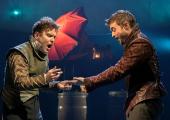
To the list of abiding theatrical partnerships one must surely add Tom Stoppard and the director David Leveaux. From his Tony-winning revival of The Real Thing onwards to Jumpers and Arcadia, all of which played both London and Broadway, Leveaux has proved a particularly dab hand at mining this playwright in all his near-infinite variety.
Intimacy is a mixed blessing: Richard Twyman’s close-up exploration of sex and violence in his production of Othello for Bristol’s Shakespeare at the Tobacco Factory takes the audience on a gripping emotional journey, but one that is at times almost beyond close for comfort.This is theatre in the round with a vengeance: the low-ceilinged space, with the audience seated within feet of the stage, in a 360-degree embrace, leaves no room for escape.
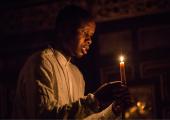
There's no reason why ruffs and candles shouldn't mesh with bursts of contemporary speech, song and lighting, given a defter hand than director Ellen McDougall's. Shakespeare's timeless issues of racism and sexism have plenty of mileage in them, though in less skewed proportions than they find here. Many of this production's components are promising, but the whole is a strident mess.

In a few days' time, Ellen McDougall will become artistic director of the dynamic little Gate Theatre in Notting Hill where she is already an associate artist.